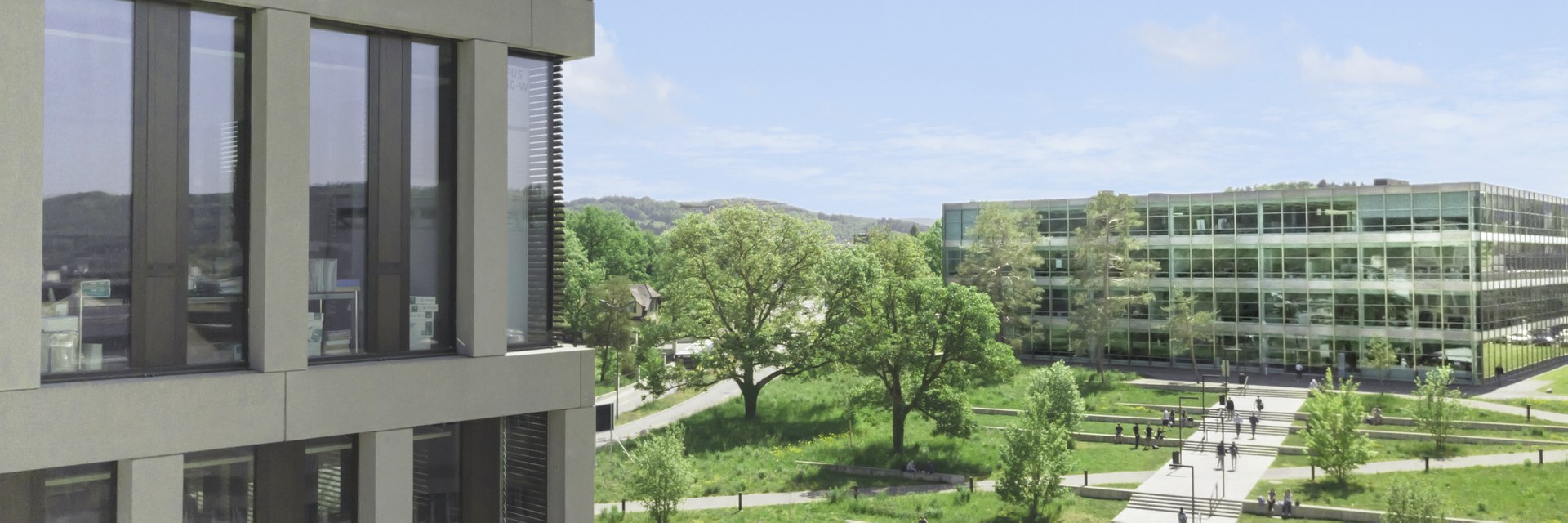
Mission and Strategy
In the years to come, the FHNW School of Engineering is going to be shaped by digital change in society, the questions surrounding the economically and ecologically sustainable supply of energy and natural resources, and ongoing internationalisation.
Mission
Education is the core business of the FHNW School of Engineering. With a bachelor's degree, students obtain a lasting professional qualification. When they start their professional lives, there is a broadly supported transfer of expertise and technology from the university to the business world. In addition, the master's degree offers students a specialisation in applied research and development.
By working on projects in applied research and development, university employees keep abreast of the latest technological developments and know the economic environment that students enter after completing their studies. At the same time, the participating business partners benefit from the transfer of skills from the university, therefore gaining an advantage in competition.
The expertise and infrastructure available at the FHNW School of Engineering is provided to industry in return for the full costs.
For services that can be performed profitably even without leveraging synergies with the FHNW, we aim to establish spin-offs.
In our continuing education services, the competencies existing at university level are transferred to industry and business. Graduates of the continuing education degree programmes are an important link between industry and the FHNW.
Strategic challenges
Digitalisation is leading to an interlinking of a wide array of devices. Production processes are being automated and virtualised, and business processes are being adapted accordingly. Digital change is occupying all specialist fields of engineering. With its "Industry 4.0" competence centre, the FHNW School of Engineering is safeguarding the transfer of its knowledge to industry.
Digital change is also affecting the education of future engineers. Students are growing up in a digitally connected world. The FHNW School of Engineering is adapting its teaching forms to the new requirements.
The growing use of renewable energies from the sun and wind is leading to various challenges: How should the energy be stored? How can the electric base load be supplied reliably? The pressure on closed material cycles is growing with the global rise in resource consumption. The FHNW School of Engineering pools its research and development activities in the centre for resource efficiency.
The economic reality in Switzerland demands that teaching and research take an international approach. Graduates of the FHNW School of Engineering are expected to have a strong command of English and an awareness of different cultures.
Acquiring projects in applied research and development calls for company-internal agreements crossing national borders, and increasingly crossing cultural borders. Because parts of the company, or the entire company, are not based in Switzerland, international sources of funding are becoming more and more necessary.
The labour-intensive elements of the value chain, specifically production, are increasingly moving abroad. In Switzerland, the importance of services is growing. All aspects of managing and coordinating international projects are growing in significance.
Products are only still developed in Switzerland in special niches. Increasingly, these are highly demanding products. Selected, specialised experts are indispensable for the development of these, and are available in Switzerland.
Because of demographic distribution, the number of engineers retiring is twice the number of those being educated in Switzerland. The FHNW School of Engineering is attempting to develop alternative routes to access a technical degree at a university of applied sciences, for instance with a practical year after high school. A targeted approach to the development of young talent aims to convey an attractive picture of an engineering degree.
